October is Talk about Your Medicines Month, giving us the opportunity to recognize the importance of addressing prescription drug abuse. The National Council on Patient Information and Education (NCPIE) has long been about addressing prescription drug abuse and the role of treatment and a recovery-oriented system of care – as well as developing educational resources to support engagement at the community level. We’ve learned that it’s not enough to say, “Don’t abuse these medicines,” which marginalizes consumers, not giving them the credit they deserve.
HBCU Campus Dialogue on Prescription Drug Abuse Prevention, Treatment & Recovery
In March 2014, NCPIE convened the Historically Black College and University (HBCU) Campus Dialogue on Prescription Drug Abuse Prevention, Treatment & Recovery, an opportunity to gain a better understanding of this issue from faculty, staff and students. With support from the Substance Abuse and Mental Health Services Administration, we convened over 40 participants for this two-day meeting. Attendees affirmed that the abuse of certain prescription medications has been normalized on some college campuses.
While the Campus Dialogue represented a microcosm of colleges and universities, we suspect that you may likely find similar findings on your campus. See if you observe yourself nodding, “yes” to the following cycles of influence that participants attributed to prescription drug abuse and addiction.
- Misaligned Economic Incentives: When young adults enter college they are keenly aware of our country’s challenging financial conditions. There is a perception of a financial gain to selling medications. “A pill can sell for $30-$40, and a bottle of Promethazine with codeine can go for $400-500.00. Money now trumps problems later.”
- Availability or Overprescribing: “There’s a pill for every ill. We’ll give you something to fix you, and we’ll fix you from the inside out.”
- Misinformation: The integration of images and words, portraying drug abuse as “big fun,” can give students the mistaken impression that, “Everyone is doing it; why not try it; how could these medicines be so bad?”
- Peer pressure: “When students find themselves at parties, and everyone is getting high, some may think that they are outside of the loop if they are not using.”
- Transitional stress: Parental and personal pressure of making good grades, being independent, fear of the unknown, being in a fast-paced environment and absence of treatment and recovery services can make medication abuse a “go-to solution.”
- Racial disparity: Drug abuse and addiction are taboo. “Families are closed about drug abuse and addiction, and there are perceptions of denial.”
Bring Prescription Drug Abuse and Addiction Out of the Shadows
What began as a discussion about prescription drug abuse on HBCU campuses provided a platform for students, staff and faculty to address much bigger challenges including transitional stress, cultural disparity, poor economy, the role of social media and institutional bias. These academic and social pressures are reinforced by the perception that prescription medications can help some students get through the day, from studying and sleeping to socializing. The two days of discussion generated strategies for creating on-campus change – recommendations that could be implemented today and in the future, including the following:
- Monthly seminars
- Comprehensive RA training and integration of mentors
- Instituting the practice of forming smaller classes
- Launching an “unplugged day” twice a year
- Investing more research dollars into alternative medicines
Raise the Level of Awareness on Your Campus
Dialogue participants concluded that we should begin by picking one provocative possibility and then exploit conditions to “viralize” change. So this October, make a commitment to raise the level of awareness about prescription drug abuse, treatment and recovery among students, faculty, staff and parents. Check out the following resources as you build and enhance your prevention and intervention efforts:
- Taking Action to Prevent and Address Prescription Drug Abuse
- Recoveropensdoors.org
- Prescription Drug Abuse Prevention: Resources for Community Action
- The Generation Rx Initiative
- Prevent Rx Abuse: A CADCA Toolkit
To learn more about the HBCU Dialogue and safe medicine use, contact Ray Bullman at NCPIE, 301.340.3940, bullman@ncpie.info, or check out www.talkaboutrx.org.
Photos courtesy of Ray Bullman.




